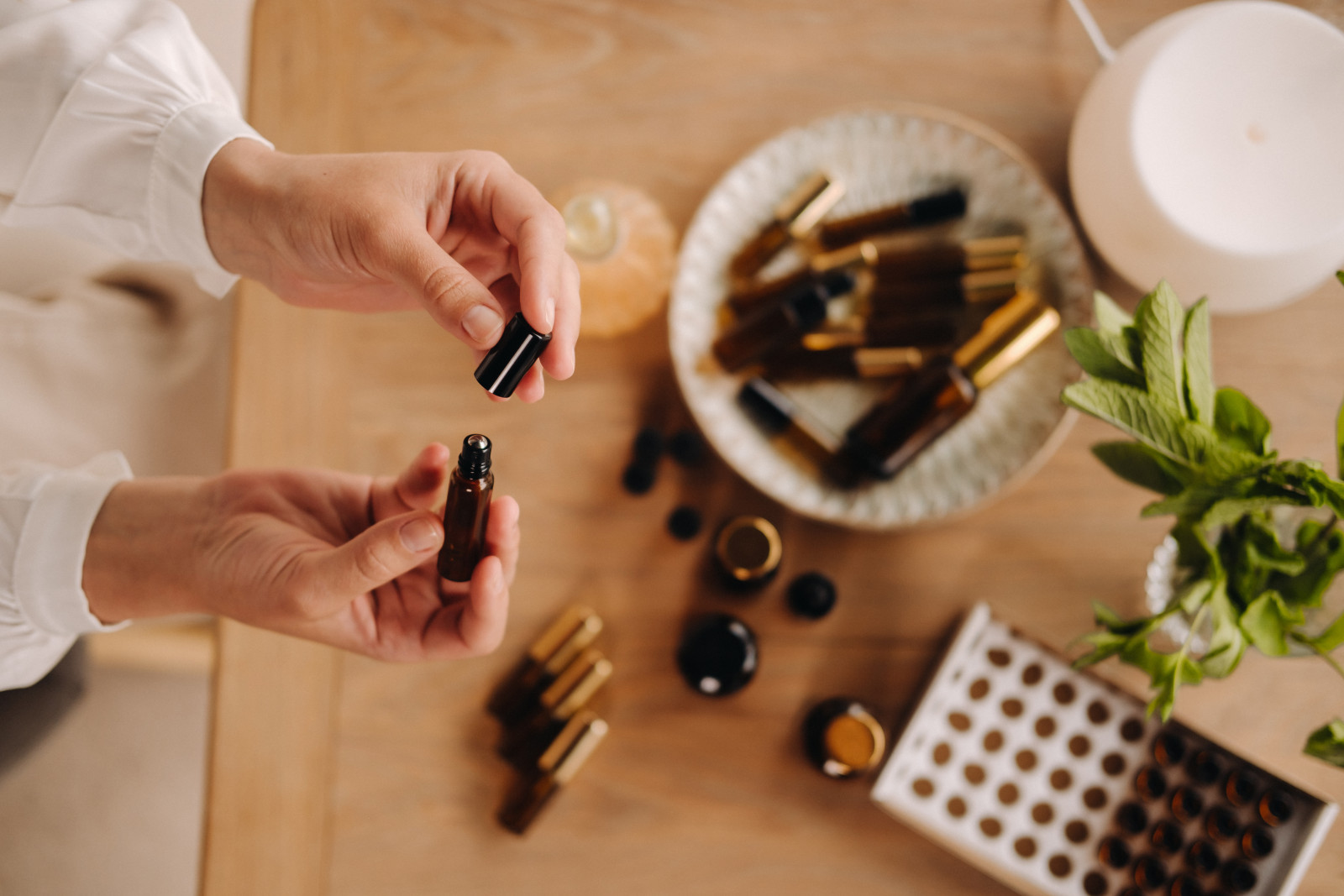
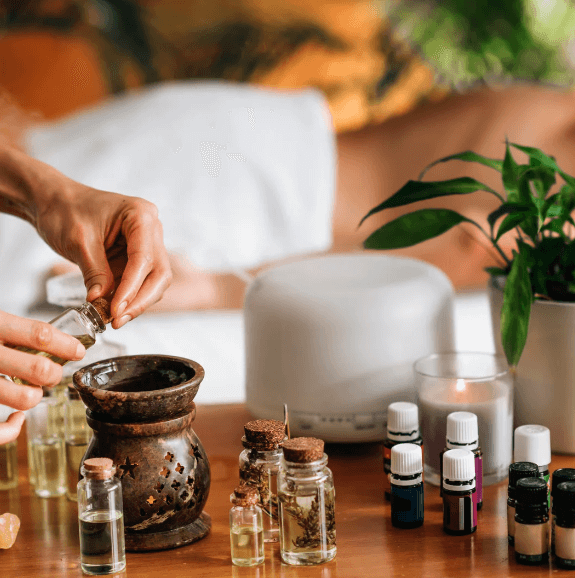
Pure essences, which are extracted by distillation, are not only the most potent plant extraction, but also the most costly to produce. Therefore, a useful gauge, though not an absolute one, is the price of the essential oil. The more pure essence the manufacturer puts in the dilution, the more you are likely to pay. In this case, you really do get what you pay for. Keep in mind too, that with essential oils, a little goes a long way.
What I hope to impress on you today is the importance of self-care, especially in these current times, and simple ways to enhance your daily life by implementing Ayurveda & Aromatherapy. Ayurveda teaches us that if what is taken in to the body is harmonious with one’s nature, the result is health and well-being. We assimilate all our experiences through our sense organs of scent, touch, taste, sight, and sound. There are two principal pathways for applying Aromatherapy. Through the skin, and via the sense of smell. Aromatherapy is an effective healing practice that can easily be added to your daily life. The most common applications include steam inhalation, diffusers, incense, smoke, baths and adding drops to massage oil.
Sm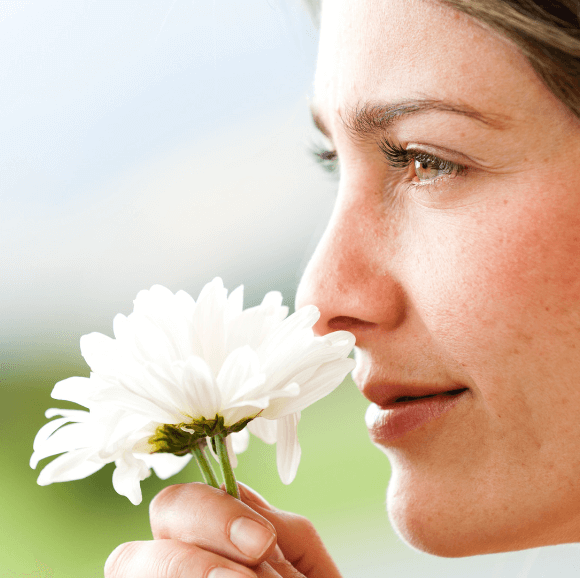 ell
ell
The Olfactory system is the pathway in the body which allows smell to be interpreted by the mind. Here is my quick blurb from geeking out on the physiology:
Our aromatic environment is chemically based, and therefore phytochemicals fill the air we breathe. While these are absorbed into the bloodstream, they also stimulate various nerve receptors within the nasal cavity and our sinuses send signals directly to different parts of the brain, including the Limbic system, the part of the brain that processes memory and emotion.
 ell
ellThe Olfactory system is the pathway in the body which allows smell to be interpreted by the mind. Here is my quick blurb from geeking out on the physiology:
Our aromatic environment is chemically based, and therefore phytochemicals fill the air we breathe. While these are absorbed into the bloodstream, they also stimulate various nerve receptors within the nasal cavity and our sinuses send signals directly to different parts of the brain, including the Limbic system, the part of the brain that processes memory and emotion.
Impulses are then transmitted to the Hypothalamus which regulates such bodily functions as temperature, thirst, hunger, blood sugar level, growth, sleep and wake patterns, sexual arousal, and the emotions. From here the Pituitary is stimulated next, which activates the Endocrine system which in turn controls digestion, emotional and sexual behavior, stress response, and all metabolic processes. Aromatherapy applied through the sense of smell has almost an immediate effect, making it on option for a quick go-to throughout the day, to stay in balance.
As you start practicing Aromatherapy, it is a wonderful way to come to know yourself. Seeing yourself where you’re at, and what you need in the moment, and applying the remedy, therefore caring for and loving yourself more. Self love and care has really transformed my life for the better and I hope to inspire you to do the same because we deserve it!
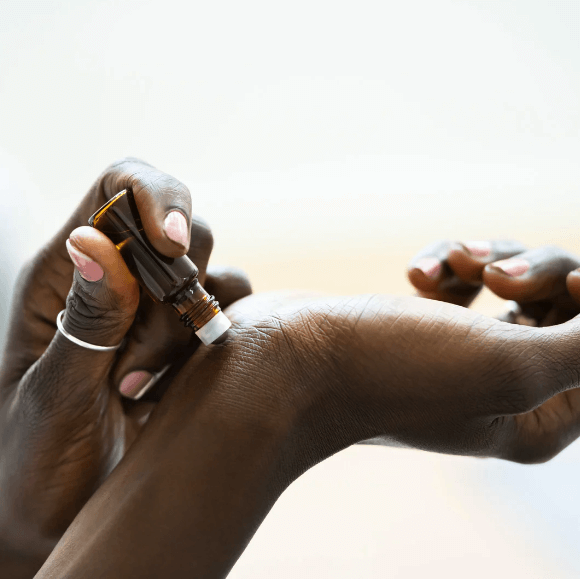 Skin
SkinWhen using essential oil drops in sprays, oils, or baths, they easily permeate the skin because their molecular structure is very small. They use the fine capillaries of the blood and lymph system to be carried throughout the entire body to all cells, and even able to cross the blood-brain barrier to act on the outer portions of the brain.
Based on research in the Journal Frontiers in Aging Neuroscience, the understanding of essential oil chemistry and their penetrative abilities through biological membranes have made them proficient treatment implements for managing various neurological disorders.
To understand how to use Aromatherapy for you as an individual, it is important to know what your unique constitution is, your Dosha, according to Ayurveda. Dosha simply means “that which goes out of balance”. The whole essence of Ayurveda, is creating balance for your unique constitution of doshas. When we are in balance, we are free from dis-ease. If you do not know your Dosha, please take the quiz here, at your leisure.
Vata needs sweet and sour aromas to increase stability and calmness in the mind and nervous system. Following recommendations are based on specific Vata disorders:
- Fear/Anxiety - Angelica, cypress, jatamansi, Himalayan cedar wood, clary sage, Cyprus, benzoin, rosewood, bergamot, frankincense, geranium, jasmine, lavender, lemongrass, orange, sandalwood, vanilla, vetiver, and ylang ylang.
- Scattered/Ungrounded - Angelica, eucalyptus, sandalwood, vetiver, spikenard, chamomile,
- Unfocused - Basil, cypress, lemon, lemongrass, rose, and rosemary.
- Insomnia - Basil, chamomile, lavender, orange, neroli, rose, rosemary, and thyme.
Pitta needs bitter and astringent aromas which pacify feelings of anger or intensity. The following recommendations are for specific Pitta disorders:
- Anger - Borage, cardamom, champa, coriander, blue chamomile, lotus, musk, rose, and saffron.
- Stubbornness - Lavender and peppermint.
- Hurtful - Hina, oud musk, geranium and yarrow.
- Domineering - Amber and geranium.
- Frustrated - Brahmi and gold chamomile
- Irritable - Benzoin, frankincense, lavender, Roman Chamomile, rose, ylang ylang.
Kapha needs aromas that pertain to pungent and bitter qualities that will influence emotions of enthusiasm towards their tasks. The following recommendations are for specific Kapha disorders:
- Depressed - Bergamot, lemongrass, geranium, clary sage, grapefruit, and orange.
- Disinterested - Lavender, champa, orange, bergamot, and patchouli.
- Greedy - Basil, rosemary, cardamom
- Attached - Mint, ginger, and myrtle.
- Uncertainty - Ylang ylang, immortelle, and jasmine.
- Resistant - Grapefruit, lime, bergamot, and chamomile.
- Sad - Benzoin, jasmine, rose, rosewood, clary sage, Melissa, and neroli.
Whether you are interested in gathering a collection of single bottles or prefer to get pre-blended oils for each Dosha, I recommend Floracopeia as it was judged as second highest quality essential oils and affordable.
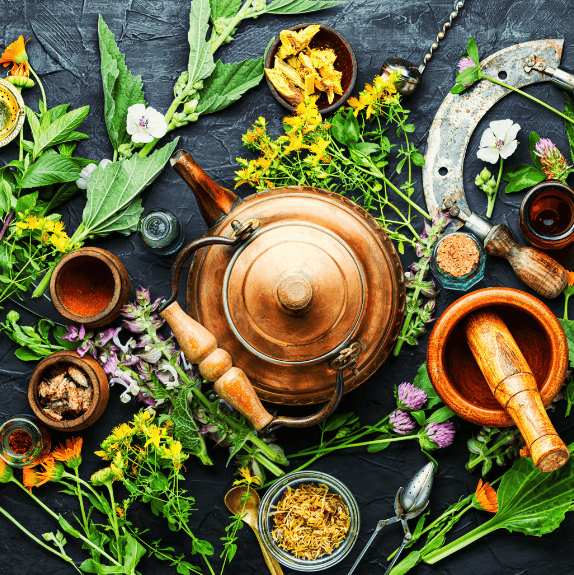 Mature Years
Mature YearsWith use of Aromatherapy, specifically essential oils of lavender, rose, geranium,
lemon, and jasmine - aging women can benefit from a reduction in symptoms
pertaining to perimenopause and menopause. Sweet Orange, Marjoram, Lavender,
Rose and Bergamot, are sweet and uplifting aromas that respectively aide insomnia,
anxiety and depression , and tonify the nervous system.
lemon, and jasmine - aging women can benefit from a reduction in symptoms
pertaining to perimenopause and menopause. Sweet Orange, Marjoram, Lavender,
Rose and Bergamot, are sweet and uplifting aromas that respectively aide insomnia,
anxiety and depression , and tonify the nervous system.
Our hero Lavender standing out as the greatest reliever of Hot Flashes. Living an Ayurvedic lifestyle gains us ground in preventative health and if implementing it begins early enough in life, hot flashes can be prevented. However if you find that hot flashes are a part of your menopause, Lavender essential oil is commonly used to soothe the discomfort of them.
For example, Lavender is a natural diuretic wherein diuretics help to regulate body temperature.
For example, Lavender is a natural diuretic wherein diuretics help to regulate body temperature.
Personal Note
I love using a diffuser, but I have also appreciated my salt lamp that has a little glass dish on top. As the light of the lamp heats the water, it releases the aromas. A dual purpose where I’m getting aromatherapy and adding the negative ions into my space from the salt lamp. There are many ways to incorporate Aromatherapy into your daily life like placing diffusers in the different rooms of your house, your office, and even your car. When I’m studying (and if I remember) I put a few drops of Rosemary on a cotton pad to sniff on it as it helps with cognitive function. I also love making different blends into a spritzer to aromatize my bed pillows, car, bathroom, or myself before a social situation. Making an aromatherapy bath is very therapeutic as you are getting the oils into your skin, and the olfactory system. The most traditional way to use Aromatherapy for meditation or your spiritual practice is Incense.
I love using a diffuser, but I have also appreciated my salt lamp that has a little glass dish on top. As the light of the lamp heats the water, it releases the aromas. A dual purpose where I’m getting aromatherapy and adding the negative ions into my space from the salt lamp. There are many ways to incorporate Aromatherapy into your daily life like placing diffusers in the different rooms of your house, your office, and even your car. When I’m studying (and if I remember) I put a few drops of Rosemary on a cotton pad to sniff on it as it helps with cognitive function. I also love making different blends into a spritzer to aromatize my bed pillows, car, bathroom, or myself before a social situation. Making an aromatherapy bath is very therapeutic as you are getting the oils into your skin, and the olfactory system. The most traditional way to use Aromatherapy for meditation or your spiritual practice is Incense.
Personally being Vata, I need extra warmth. Adding a few drops of ginger to oil that I massage myself with everyday is a perfect solution. It smells amazing and feels wonderful on my joints which can easily get inflamed. Also putting drops of Lavender, Jatamansi (An Ayurvedic Valerian), or an essential oil of your choice, into a carrier oil (I usually use Sesame in winter and Coconut in summer) and massaging my feet at night, really helps with grounding my energy and winding down for a more restful sleep. The palms of the hands and the soles of the feet are covered in nerve endings (that’s why massage on them feels so good!) So they are extremely important areas not to neglect.
Aromatherapy really is for everyone. I’ve never met anyone who didn’t appreciate the aromas of nature and that is what essential oils are. I consider it a gift and a blessing that we have been able to capture the essence and fragrance of nature in a little bottle. Making it really easy to use with quick and therapeutic benefits, which is what we need in these times. It is important to note that Aromatherapy is an adjunct to dosha balancing, with diet & lifestyle being the cause of dosha imbalance. Fortunately it is never too late to improve our health with the right tools. So add some oils to your bath and and aromatize!
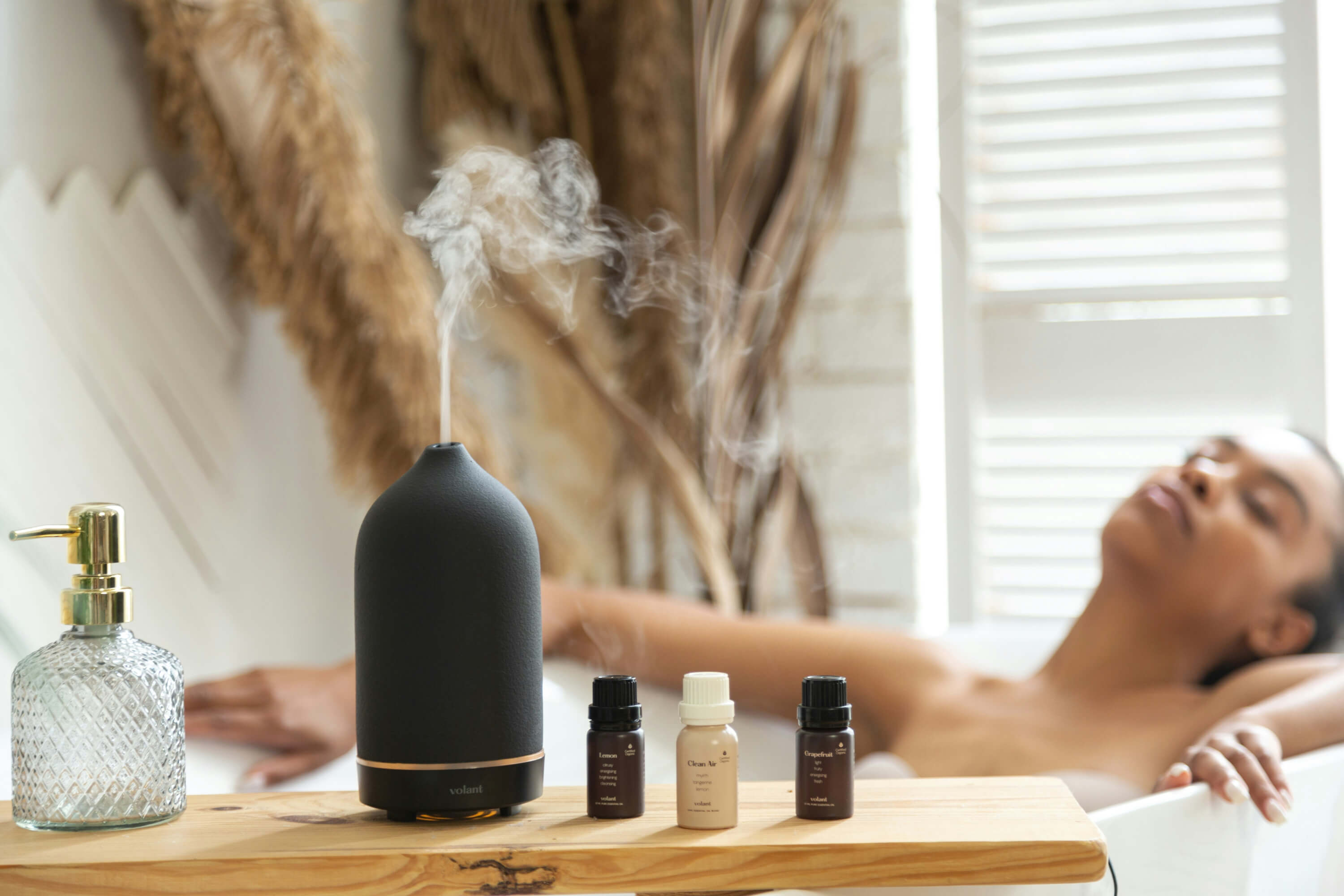
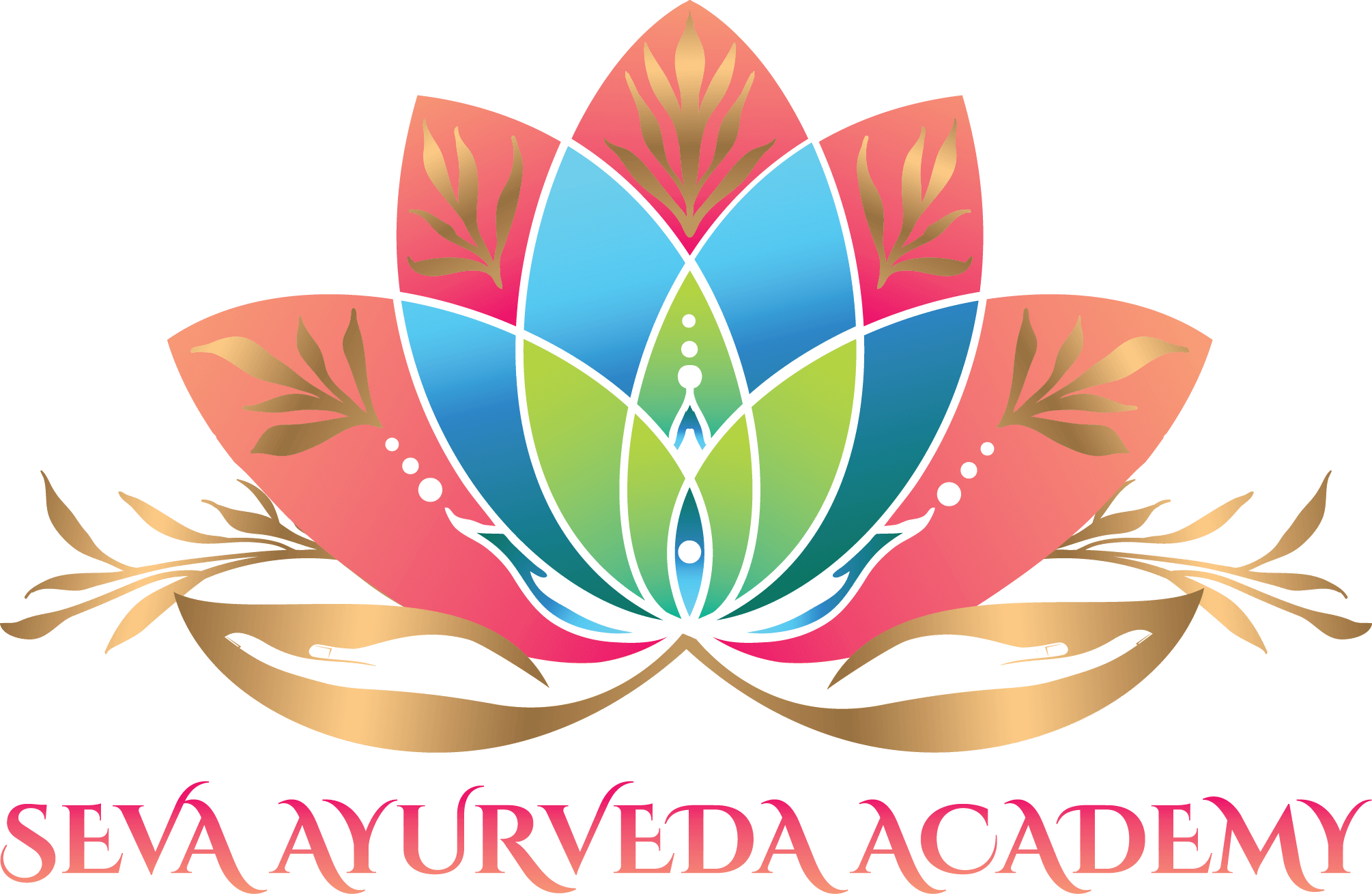
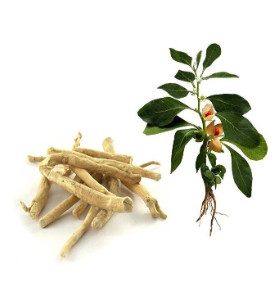
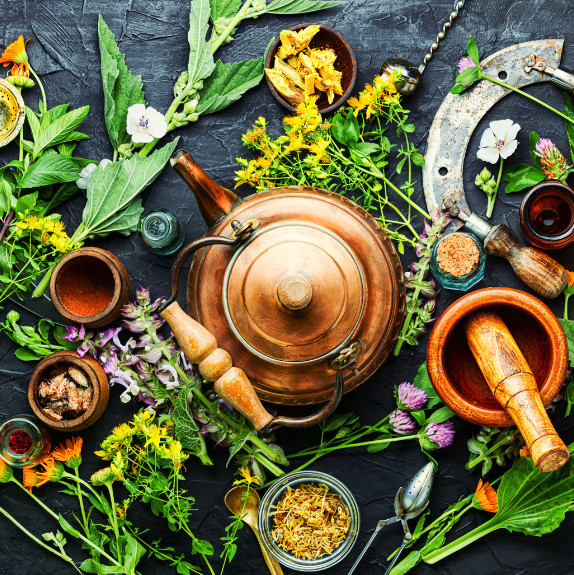
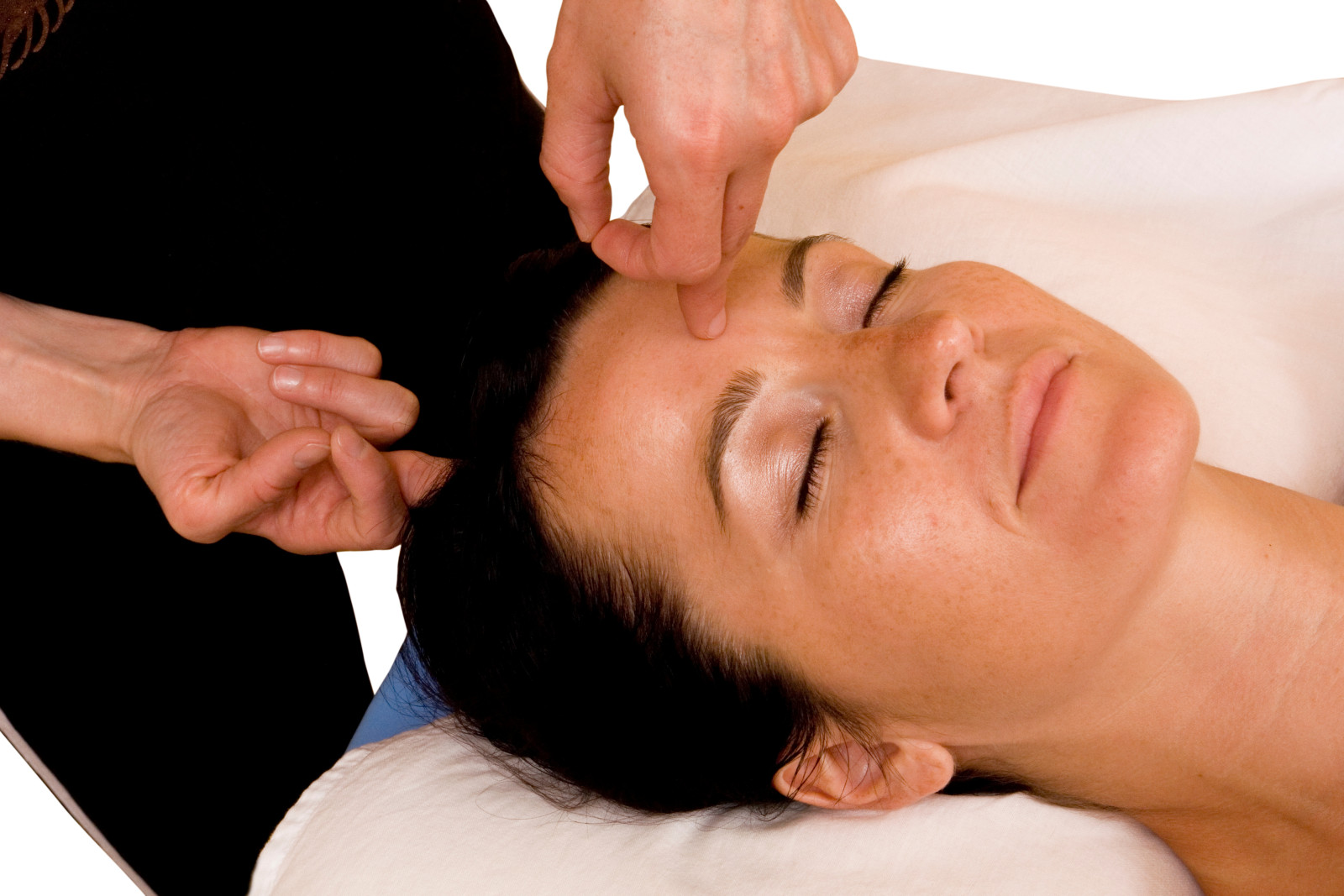

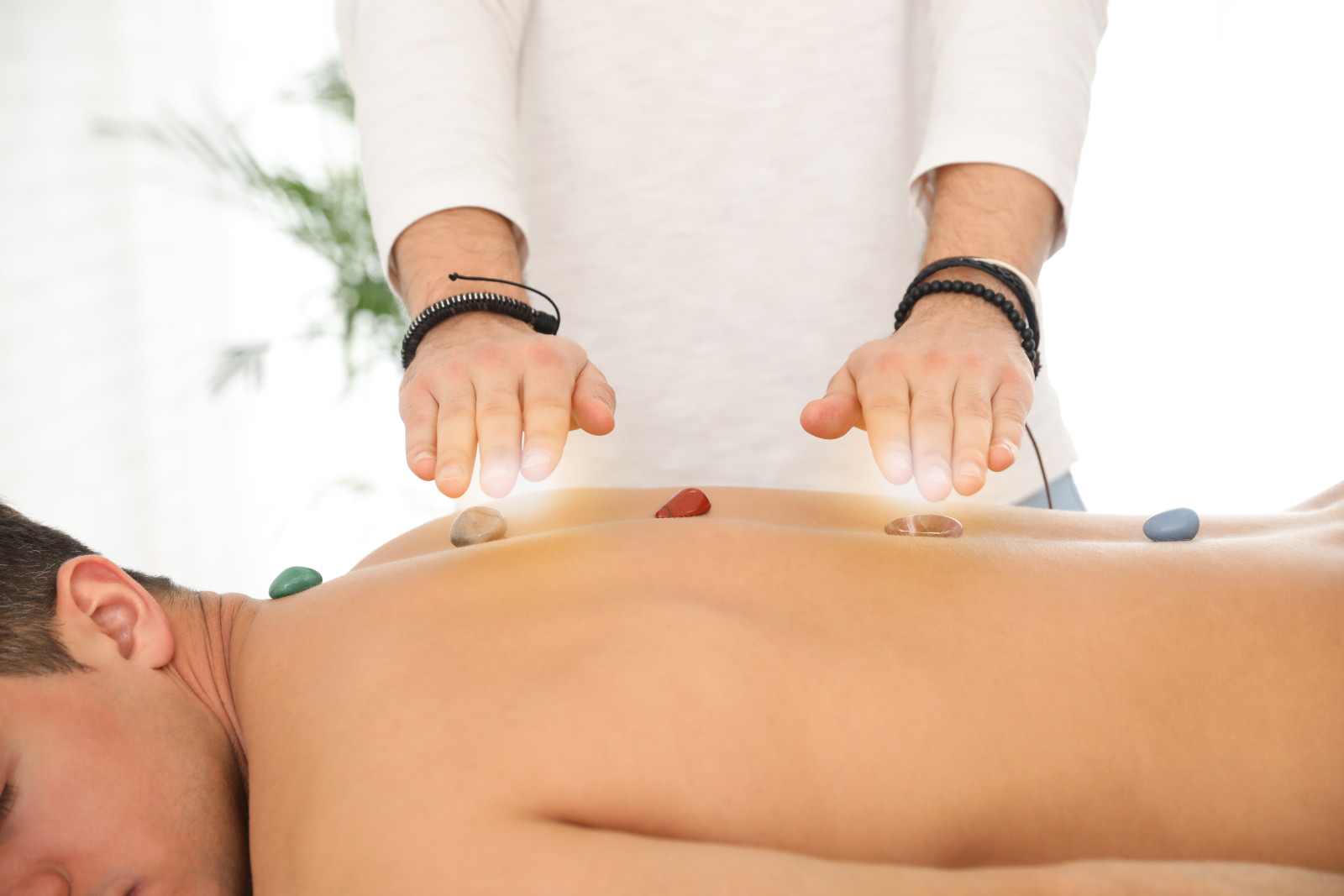
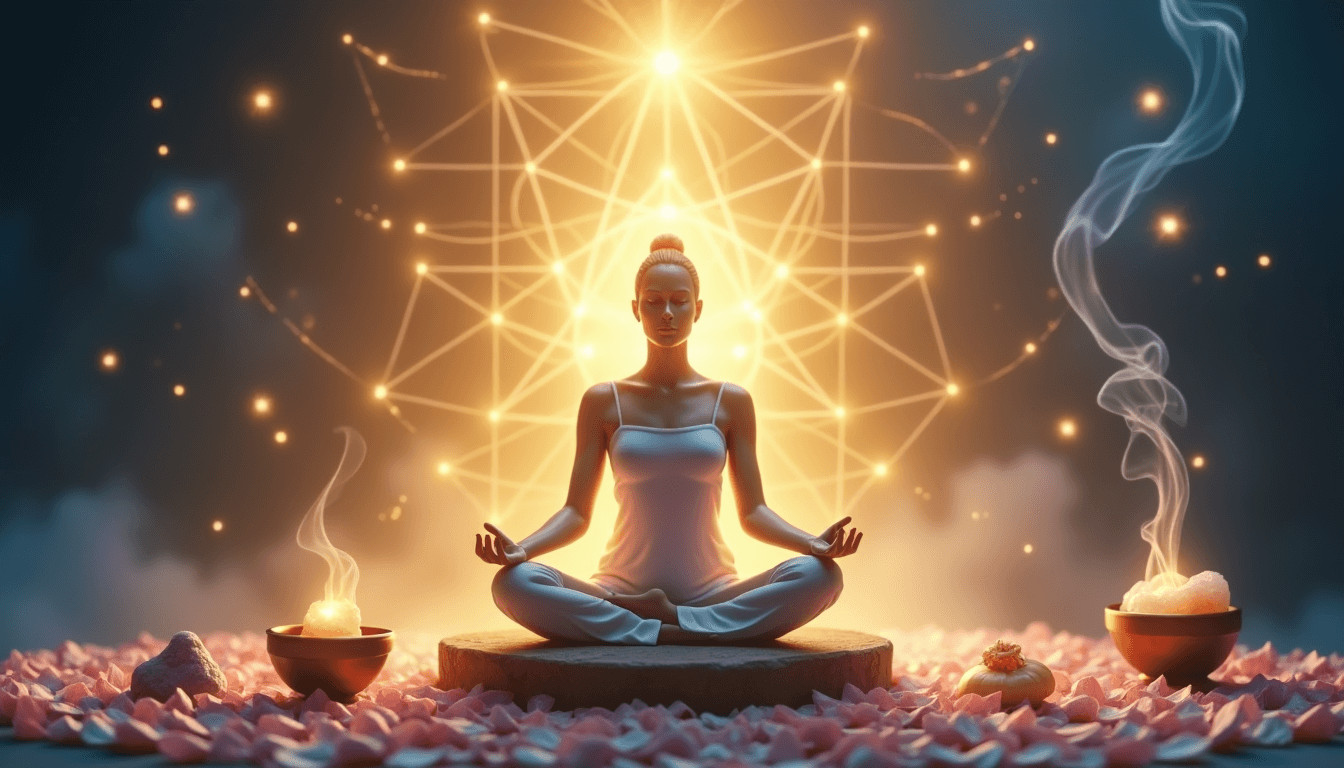
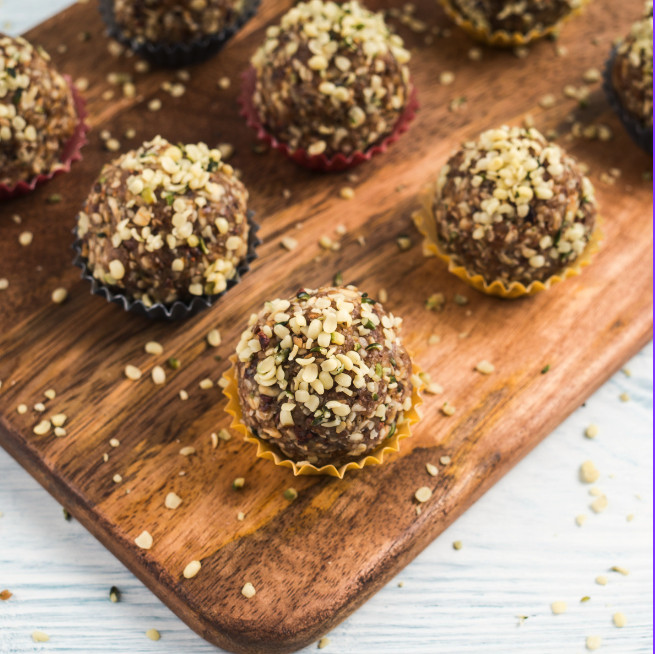
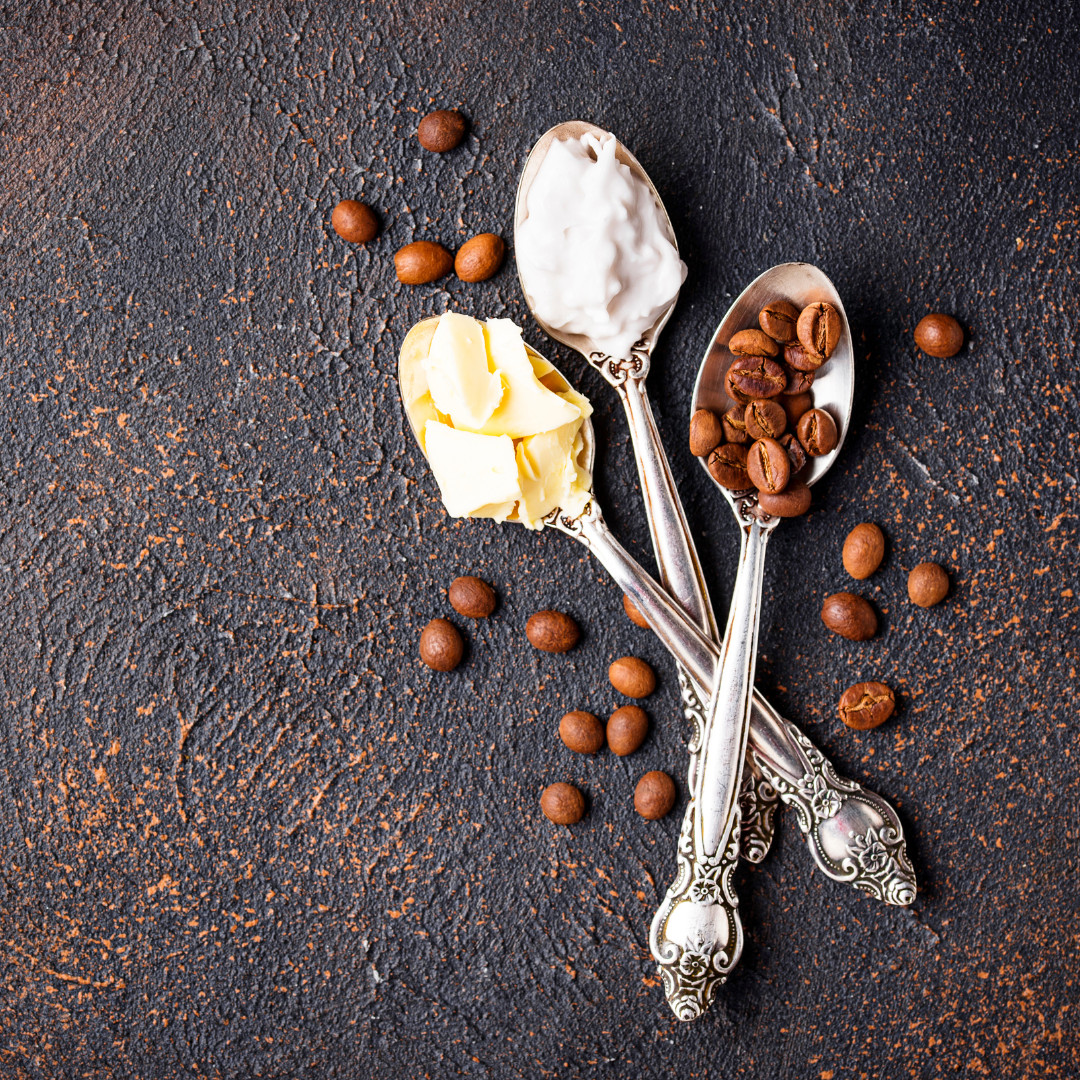
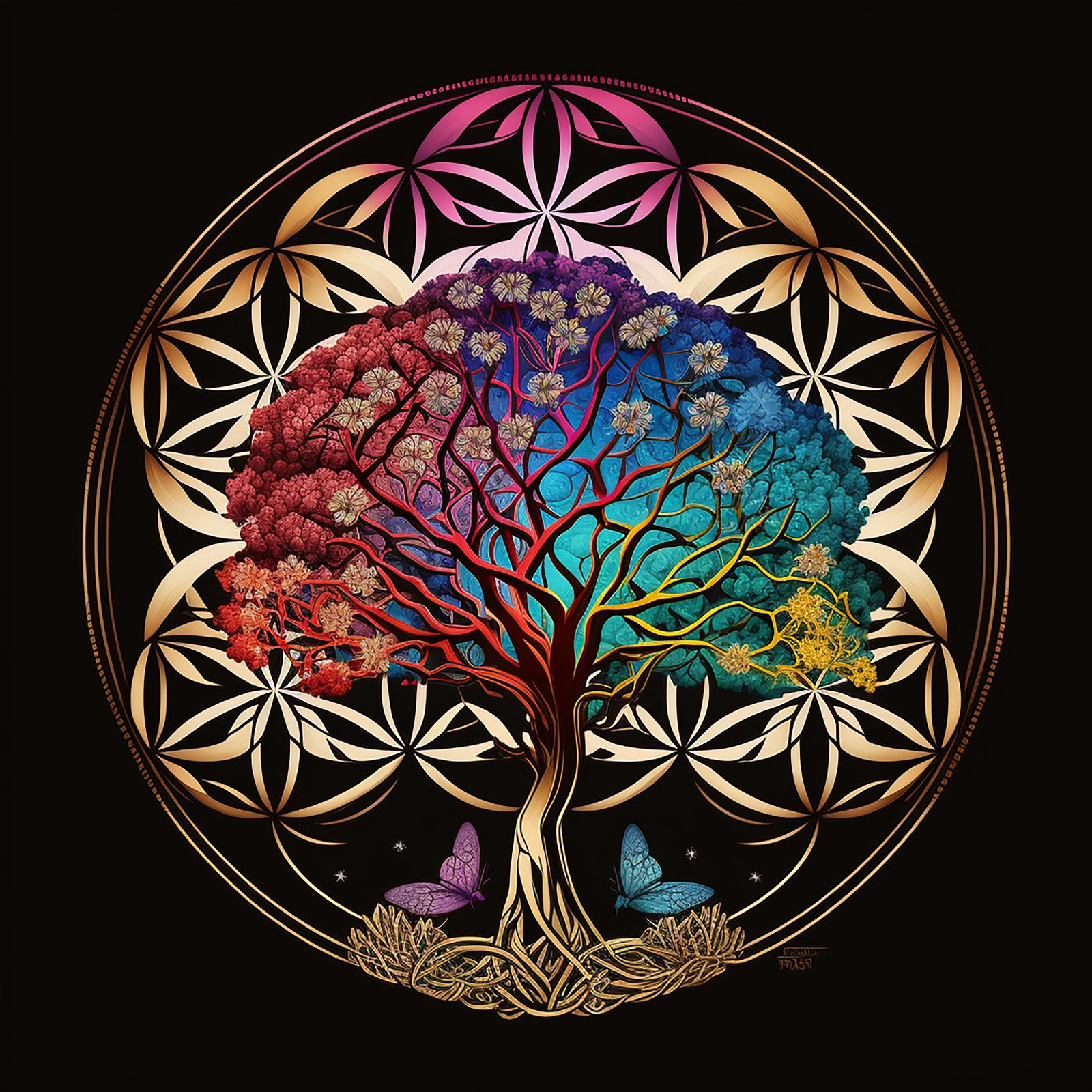






0 Comments